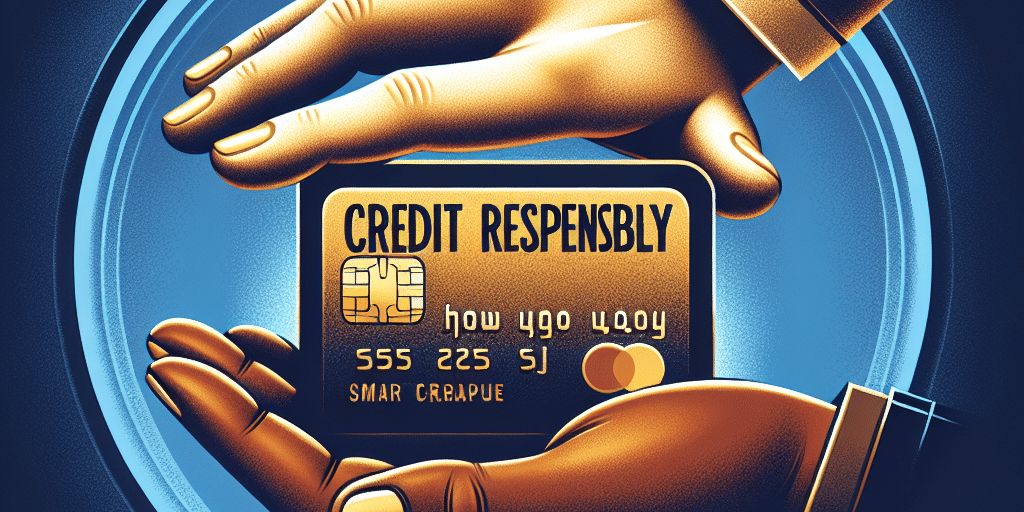How to Use Credit Responsibly: A Comprehensive Guide
Credit can be a powerful tool in managing your finances and achieving your long-term goals. However, it can also become a double-edged sword if not managed wisely. Understanding how to use credit responsibly is crucial for maintaining financial health and avoiding pitfalls that can lead to debt and poor credit scores. Here’s a comprehensive guide to help you navigate the world of credit with confidence and prudence.
1. Understand Your Credit Score
Your credit score is a key indicator of your financial health and influences your ability to obtain loans, rent apartments, and even get hired for some jobs. The score generally ranges from 300 to 850, with higher scores indicating better creditworthiness. Ensure that you:
- Check Your Credit Report Annually: Obtain free credit reports from the three major bureaus—Experian, TransUnion, and Equifax—to verify accuracy and dispute any errors.
- Know the Factors Affecting Your Score: Payment history, credit utilization, length of credit history, new credit inquiries, and credit mix all play a role in determining your score.
2. Borrow Only What You Can Afford
Before taking on new credit, assess your ability to repay. Calculate your income and expenses to determine how much you can reasonably pay each month without stretching your budget too thin.
- Create a Budget: A well-structured budget can guide your spending and help you allocate funds for debt repayment.
- Avoid Impulsive Decisions: Evaluate major purchases carefully to avoid unnecessary debt.
3. Pay Your Bills on Time
Consistently paying your bills on time is one of the most crucial steps in building and maintaining good credit.
- Set Up Reminders: Use calendar alerts or automated reminders to keep track of due dates.
- Automate Payments: Enroll in automatic payment plans to ensure timely payments, reducing the risk of missing due dates.
4. Manage Your Credit Utilization Ratio
Credit utilization, the amount of credit you’re using compared to your credit limit, impacts your credit score significantly.
- Keep Utilization Low: Aim to keep your credit utilization below 30%. If possible, lower it to under 10% for optimal scoring.
- Increase Credit Limits: Requesting higher credit limits can reduce your utilization rate, but only if you maintain your spending habits.
5. Avoid Unnecessary Credit Inquiries
Each time you apply for credit, an inquiry is recorded on your credit report, which can temporarily lower your score.
- Limit New Credit Applications: Avoid applying for multiple credit accounts in a short period.
- Consider Alternative Options: Seek pre-qualification offers that don’t affect your credit score.
6. Use Credit Cards Wisely
Credit cards offer convenience and rewards but can also lead to debt if used recklessly.
- Pay in Full: Whenever possible, pay your balance in full each month to avoid interest charges.
- Monitor Your Statements: Regularly review your credit card statements for unauthorized charges or errors.
7. Build a Diverse Credit Portfolio
A mix of credit types—such as credit cards, installment loans, and retail accounts—can positively impact your credit score.
- Diversify Gradually: Don’t open multiple types of accounts at once; instead, build a diverse portfolio over time.
- Manage Different Accounts: Demonstrate your ability to manage various types of credit responsibly.
8. Seek Professional Advice if Needed
If you find yourself struggling with managing credit, don’t hesitate to seek professional advice.
- Consult Financial Advisors: Certified financial planners can offer tailored advice for managing and improving your credit.
- Credit Counseling Services: Non-profit credit counseling agencies can help you create a debt management plan and offer guidance on budgeting and credit use.
Conclusion
Using credit responsibly involves discipline, awareness, and strategic planning. By understanding your credit score, borrowing within your means, paying bills on time, managing your credit utilization, avoiding unnecessary inquiries, using credit cards wisely, building a diverse credit portfolio, and seeking professional advice when necessary, you can harness the power of credit to enhance your financial stability and achieve your financial goals. Responsible credit management is a lifelong journey, but with these steps, you’ll be well on your way to financial success.







